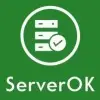Ava와 채팅 - AI 비즈니스 컨설턴트
안녕하세요. 저는 당신의 비즈니스를 강화시키도록 도와주는 AI 가이드 Ava입니다!
이미 사업을 운영하고 있거나 사업을 새로 시작하는 것을 바라신다면 저는 AI 기반 프리랜서를 사용하여 고객님의 비전을 현실로 바꾸는 데 도움을 드리고자 왔습니다. 비즈니스 목표를 공유하면 재능 있는 프리랜서들이 입찰할 수 있는 프로젝트를 함께 만들 수 있습니다. 비전을 현실로 만들어봅시다!
사업이 있습니다
나는 사업을 시작하고 있어요
대화를 이메일로 보내는 중에 문제가 발생했습니다. 나중에 다시 시도 해주십시오.
한 시간에 한 번만 대화를 저장할 수 있습니다. 나중에 다시 시도 해주십시오.
대화가 너무 짧습니다. 저장을 하고 싶으면 Ava와 계속 채팅하세요.
15 of the best software development tools for 2019
Software developers have very little time on their hands, and it shouldn't be wasted on mundane tasks. These tools will make your workflow efficient.
2019. 6. 24. • 5 분 읽을 거리
업데이트 작성일: 2020. 1. 23., 작성자: Adam S.

Content Manager at Freelancer.com
클립보드로 복사하는 과정에서 문제가 발생하였습니다. 고객님의 권한 정보를 조정하신 후에 재시도하여 주시기 바랍니다.
클립보드로 복사되었습니다.

Good tools make software development more efficient and less prone to bugs. Here are some of the best
While it's the poor workman who blames his tools, let's get real: if your tools suck, it's likely your finished product will too. This holds true in just about every discipline, including software development.
Fortunately, there's no shortage of tools available for programmers. But it's easy to be paralyzed by the sheer volume of development tools vying for your attention (and sometimes money). We've sorted through and come up with 15 of our favorites.
Software development all comes down to your code. Sure, you could choose just about any text editor or integrated development environment (IDE) for coding, but these tools will help you work faster and with fewer mistakes.
1. Atom
Atom comes pre-loaded with four different UI themes and eight syntax themes, but you can create your own theme or browse some created by the text editor's active developer community. There's also a huge library of plugins. Moreover, if you don't find what you're looking for, you can create it in HTML and JavaScript.
2. NetBeans
Freelance Programming Experts
3. Komodo
Sure, all the regular features are here. There's autocomplete, a customizable interface and a project manager. But by upgrading from open-source, you also get unit testing, live previewing, a dependency detector, universal package management, visual debugging and code refactoring. And that's just scratching the surface of Komodo IDE's features. If you're looking for a powerful, full-featured IDE, Komodo is one of the best.
Best code documentation tools
A good developer makes sure to document. It's not just a useful tool for any other developers who need to understand your code. It also helps refresh your memory when you need to return to a project you've left on the back burner.
4. Haroopad
Haroopad runs on Windows, Mac OS, Ubuntu and Linux, and lets you create documentation in formats as varied as slide decks and blog posts to emails and flowcharts. It supports Markdown, and you can choose a variety of themes. You can publish to Evernote, Wordpress, Tumblr and MediaWiki, and can export to PDF, RTF or EPub. It even supports MathJax for mathematical expressions. And it's open-source.
5. SimpleMDE
Best code review tools
Even the best software developers make mistakes. These tools will make sure those mistakes don't become fatal errors.
6. Barkeep
7. Gerrit
Best framework tools
Frameworks can massively improve your productivity and cut through a lot of the drudgery in coding. Here are a few of our favorites.
8. AngularJS
9. Phalcon
Best source control tools
Tracking changes to your code is crucial even if you're coding solo. It becomes even more important if you're working in a team. These tools will help you keep track of all your branches and diffs.
10. AWS CodeCommit
11. Plastic SCM
Featured Work in Programming
Best productivity tools
Software development requires some pretty keen organizational skills. Having the right tools can help you code smarter and faster.
12. Jira
13. Slack
If there's a better enterprise messaging software out there, we haven't found it. Slack is a great system for keeping everyone involved with your project on the same page. Its best feature is its integration with just about every development tool you can imagine to send automated messages that update you on the progress of all your projects.
Best learning tools
Learning to code is a lifelong process. No matter how good and efficient you become, new technology means you'll continue to evolve as a developer. These tools help you keep your skills sharp and your talents marketable.
14. Coursera
15. Devslopes
Freelance Programming Experts
관련 스토리
고객님의 프로젝트를 도와 드릴 저희 기술 부조종사팀과의 대화 시작
고객님 맞춤형으로 추천해 드리는 게시글

Launching a digital product like a web service or a mobile app can be scary. We'll show you the steps to success
18 min read

Got a great idea for an app? Need a new way to grow your business? We tell you everything you need to know about building a mobile app in 2020.
16 min read

Learn the complete end-to-end process of building a successful website for your business in our comprehensive guide
19 min read

A million dollar business idea is useless if it remains written on a napkin. Learn the best ways of securing funding to build your dream.
26 min read
감사합니다! 무료 크레딧을 신청할 수 있는 링크를 이메일로 보내드렸습니다.
이메일을 보내는 동안 문제가 발생했습니다. 다시 시도해 주세요.
미리 보기 화면을 준비 중...
위치 정보 관련 접근권이 허용되었습니다.
고객님의 로그인 세션이 만료되어, 자동으로 로그아웃 처리가 되었습니다. 다시 로그인하여 주십시오.







































